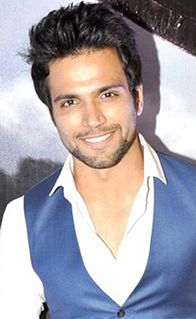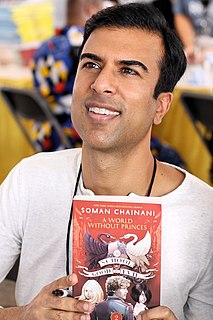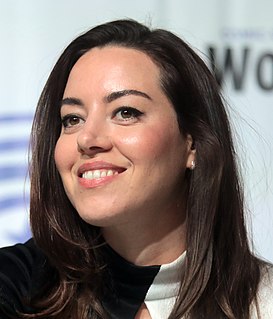A Quote by Julian Baggini
Once Steve Fuller said that there is this idea that your responsibility as an intellectual is just to speak the truth as you see it. But actually, you should be more appreciative of what needs to be said. I don't think that's ever an excuse to say something you don't believe is true - but sometimes the emphasis has to be different. Well, if I'm talking to an audience of hardline atheists, I'll be trying to unsettle them a bit more, whereas, if I'm speaking to an audience of believers, I'll be giving them more of the pros of atheism. It's about having a sensitivity to context.
Quote Topics
About
Actually
Appreciative
Atheism
Atheists
Audience
Be Different
Believe
Believers
Bit
Context
Different
Don't Believe
Emphasis
Ever
Excuse
Fuller
Giving
Having
Idea
Intellectual
Just
More
Needs
Once
Pros
Responsibility
Said
Say
See
Sensitivity
Should
Something
Sometimes
Speak
Speak The Truth
Speaking
Steve
Talking
Them
Think
True
Truth
Trying
Well
Whereas
Your
Related Quotes
. . . I felt that making her one-dimensional would be an insult to the audience, and also not as interesting. All destructive people have an inner side to them, and the more three-dimentional your characters are on screen the more compassion you can open up in an audience . . .. To me, that involves the audience more, it stimulates them and asks more of them.
I started having some memory-loss issues. I took a neurological exam, and they said, "Well, you should stop fighting now." And I kept begging them for one more fight, one more fight, and the doctor said to me, "How much are they going to pay you?" I was supposed to fight three more times, and one would have been for a cruiser belt. So I said, "I just need to fight three more times." He said, "Listen, you can't even get hit in the head one more time, your neuro is so bad."
When someone says "that resonates with me" what they are saying is "I agree with you" or "I align with you." Once your ideas resonate with an audience, they will change. But, the only way to have true resonance is to understand the ones with whom you are trying to resonate. You need to spend time thinking about your audience. What unites them, what incites them? Think about your audience and what's on their mind before you begin building your presentation. It will help you identify beliefs and behavior in your audience that you can connect with. Resonate with.
As an actor, you should always keep your trump card hidden from your audience. I want the audience to keep expecting more and more from me. I want to do 'different' work - good and memorable roles - so that audience appreciate me more. That's why I love to surprise my audience with something they never expect me to do.
I never think of my work as writing for a young audience, frankly, because I think it risks talking 'down' to them. The idea is for these books to work just as well as for adults as kids. As for what readers will take away, I just want them to love being in the world and see it as a safe place to explore things that adults are often uncomfortable talking to them about.
Having to stand in front of an audience and have it be your job to make them laugh, you can't really look to anyone but yourself. It's what you wrote, what you said and how you said it, so it's kind of terrifying, but I liked it. When it goes well, it's the best feeling in the world. When it doesn't go well, it's the worst feeling, but once you get into the rhythm of it, I think it's really fun.
The concept of who your audience is becomes more important than your site. Sometimes you can be commissioned to do a piece in Strasburg, and it works. Sometimes you're commissioned to do a piece somewhere else and it doesn't work, but then it moves to another city, the people embrace it, and becomes part of them. You just misjudged the needs of the people. Art is about giving people material and things to work with to fulfill whatever needs they have.
I hear actresses talking about this all the time - this idea that you sit in meetings and the studio says, "Well, you can't do that because the audience won't like that. They won't root for you. It's not sympathetic." I think that we've been served this one dish for so long that we believe that it's all that audiences want, but when we test them or throw something out there that has some truth to it, they seem to always respond.
I've always thought of characters like advent calendars. You have Christmas and you have all the little doors over the windows and every day you're allowed to open one more as it gets towards Christmas and you see more and more about what's inside that house.I remember as a kid being fascinated by that and I've always thought of my character as a little bit like that. I like to have secrets and slowly let those secrets out to the audience, sometimes never let them out, but let them see as you open the shutters, open and see a little bit more of a character.
Sometimes you hear a person speak the truth and you know that they are speaking the truth. But you also know that they have not heard themselves, do not know what they have said: do not know that they have revealed much more than they have said. This may be why the truth remains, on the whole, so rare.
The mainstream media today has the biggest disconnect with its audience that it's ever, ever had. And as the disconnect grows and as more and more people distrust them, then the media digs in more and more and says you don't know what you're talking about, you don't know how we do our jobs, you don't know what's important.
I think when you're younger, as an actor you have much more of a notion that you are doing something to the audience. But with experience, I think you begin to worry less about what the audience's experience is and concentrate on working with the other actors, and that tends to let the audience do more work.
You can't always trust your emotions. You can't always trust your feelings. And I'm not talking about pain but I'm talking about more about life issues where something happens to you or somebody says something to you or somebody said nothing to you and you're waiting for them to say something to you.



































